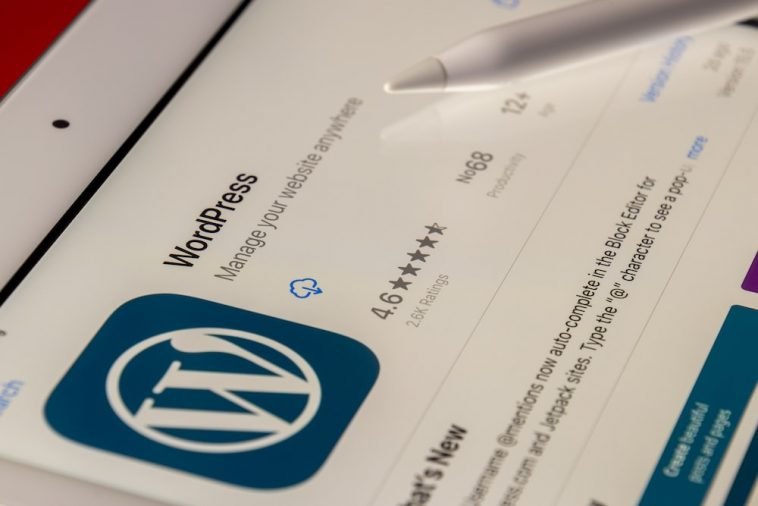Introduction.
If you’re running a WordPress website, you’ve probably heard the term “backlinks” tossed around a lot. But what are backlinks, and why do they matter so much for your website’s success?
To put it simply, backlinks are like votes of confidence from other websites. When one site links to your website, it’s telling Google and other search engines that your content is valuable and trustworthy.
This helps improve your rankings on search engines like Google, which ultimately drives more traffic to your site.
But here’s the thing—getting backlinks isn’t something that happens overnight. It takes a bit of strategy, patience, and a willingness to put in the work.
In this article, I’m going to walk you through everything you need to know about building backlinks for your WordPress website.
Why Do Backlinks Matter?
Before we dive into how to build backlinks, let’s take a moment to understand why they’re so important.
Google (and other search engines) uses backlinks as a way of measuring a website’s authority. The more quality backlinks your site has, the more likely it is to be seen as an expert on a particular topic. It’s like having other credible websites vouch for your content.
The impact of backlinks on SEO cannot be overstated. According to a study by Backlinko, the top-ranking pages on Google have 3.8X more backlinks than those ranking in lower positions. That’s a big deal if you want your website to rank higher and attract more visitors.
But not all backlinks are created equal. A link from a high-authority site in your niche is worth way more than one from a random, low-quality website. Quality matters just as much as quantity.
Types of Backlinks You Should Focus On
When you start building backlinks, you’ll encounter different types. Here are the main ones you’ll want to focus on:
- Natural Backlinks: These are links that happen organically when other websites find your content valuable and link to it on their own.
- Manual Backlinks: These are links you actively seek out through outreach or partnerships.
- Self-Created Backlinks: These are links you add to directories, forums, or comment sections. While these can be useful, they don’t carry as much weight as natural or manual backlinks, and too many of them can hurt your SEO.
How Do I Build Backlinks for My WordPress Website?
Now that we’ve established why backlinks matter, let’s get into how to build them for your WordPress website. I’ll walk you through some proven strategies to help you boost your site’s SEO.
1. Create High-Quality Content
The first step to getting good backlinks is having content that’s worth linking to. If you create informative, engaging, and well-researched posts, other websites and bloggers are more likely to link back to your site.
Think about what your audience is searching for, and aim to create content that answers their questions or solves their problems. This can be anything from blog posts and tutorials to infographics, case studies, and videos.
2. Guest Blogging
Guest blogging is one of the most effective ways to build backlinks. When you write a blog post for another website in your industry, you get the opportunity to include a backlink to your own site.
However, it’s important to make sure the website you’re guest posting on is relevant to your niche and has good domain authority. Websites with strong traffic and authority will give you a much more valuable backlink.
To get started with guest blogging:
- Research websites in your niche that accept guest posts.
- Reach out to the website owner or editor with a pitch.
- Make sure your pitch is unique and provides value to their audience.
3. Reach Out for Backlinks
One of the most direct ways to earn backlinks is by reaching out to other websites and asking them to link to your content. This works particularly well if you’ve created content that’s relevant to their audience.
Start by identifying websites that might be interested in your content. Look for sites that have written about similar topics but haven’t linked to your article.
Then, send a polite email offering your content as a valuable resource. Be sure to explain why it would benefit their readers.
4. Use Broken Link Building
Broken link building is a strategy where you find broken links on other websites and suggest replacing them with a link to your own relevant content. Not only does this help you build backlinks, but it also helps the website owner by fixing a broken link.
To do this:
- Use tools like Screaming Frog or Ahrefs to find broken links on websites in your niche.
- Reach out to the website owner and offer your content as a replacement for the broken link.
5. Create Shareable Content
People love to share content that is informative, useful, or entertaining. By creating shareable content, you increase the chances of getting backlinks from social media, other blogs, and even news outlets.
Some types of content that are especially shareable include:
- Infographics: These visually appealing graphics are easy to share and often get picked up by other blogs.
- List Posts: Posts like “Top 10 Tips” or “Best Resources” are often shared because they provide value in a quick, digestible format.
- Case Studies and Research: People love original research and data, especially if it can be used to support their own content.
Promote your shareable content on social media, forums, and niche communities to increase visibility.
6. Leverage Social Media
Social media platforms can also help you build backlinks. By promoting your content on sites like Twitter, LinkedIn, and Facebook, you increase the chances of others discovering it and linking to it.
Engage with others in your niche by sharing their content and participating in relevant conversations. This can help you build relationships and increase the likelihood of others linking back to your site in return.
7. Utilize Online Directories
Submitting your website to online directories can help you get backlinks, though they’re generally less powerful than other types of links. Still, directories can help increase your website’s visibility, especially for local SEO.
Look for reputable directories in your niche or industry, and make sure your listing is accurate and up-to-date.
8. Collaborate with Influencers or Industry Leaders
Collaborating with influencers or industry leaders can be a great way to build backlinks and grow your site’s authority. This could involve interviews, joint content creation, or simply being featured in their content.
Reach out to influencers who have a strong following and offer to collaborate on something that benefits both parties. This could be an article, podcast, or even a social media shout-out.
FAQs
Q: How many backlinks do I need to rank on Google?
There’s no magic number. It depends on your competition, industry, and the quality of your backlinks. Generally, the more high-quality backlinks you have, the better your chances of ranking higher. But focus on getting relevant, authoritative backlinks rather than just aiming for quantity.
Q: Are all backlinks the same?
No, all backlinks are not the same. Backlinks from high-authority, relevant websites are much more valuable than links from low-quality or unrelated websites. Aim for quality over quantity.
Q: Can I buy backlinks?
While it’s technically possible to buy backlinks, it’s not recommended. Google can penalize websites for buying links, especially if the links are from low-quality sources. It’s best to focus on earning backlinks through organic methods like content creation and outreach.
Conclusion
Building backlinks for your WordPress website is essential for boosting your SEO and driving more traffic.
By focusing on high-quality content, guest blogging, broken link building, and other strategies, you’ll gradually build a solid backlink profile that helps your site rank higher on search engines.
But here’s the big question: what’s your next step in building backlinks? Do you have a specific strategy in mind or are you ready to start experimenting with some new tactics?





GIPHY App Key not set. Please check settings